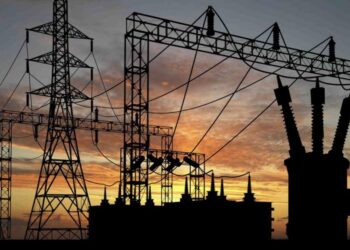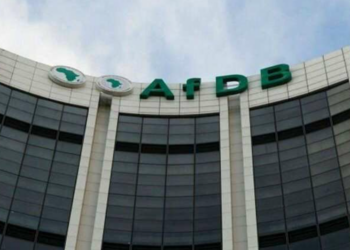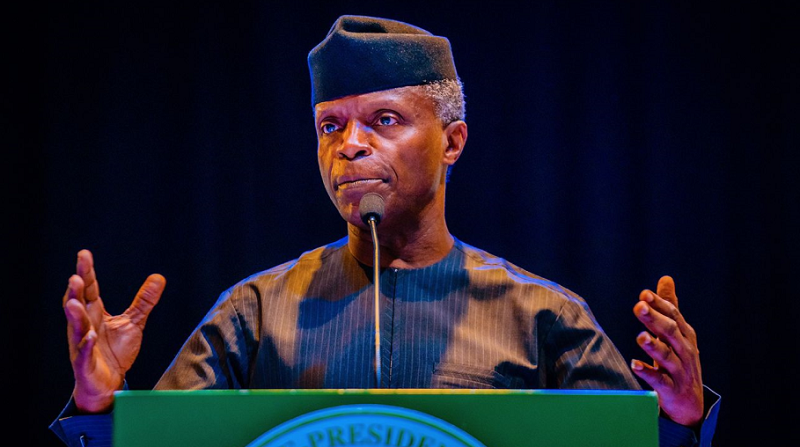Vice President Yemi Osinbajo has announced that Nigeria needs to take a second look at how Small and Medium Enterprises (SMEs) are regulated, so as to improve the business environment for SMEs in Nigeria.
The Vice President disclosed this at the commissioning of the Abuja Chamber of Commerce Trade and Convention Centre on Monday.
READ: FG suspends issuance of Free Trade Zone licenses
He added that the FG has stepped in by reducing taxes for SMEs from 2021, and added that smaller levies paid by SME’s should be reviewed to make the businesses environment better.
“But I think that one of the drawbacks that we have had in improving the business environment is really with respect to how we regulate small businesses.
READ: FG proposes additional tax exemption for small businesses
“For example, in Abuja, I hear very frequently, small businesses which talk about the kinds of problems they experience -either with fumigation licences or one licence or the other— all manner of constraints which ideally should not occur.
“I know that the Minister of FCT is actively working with the Presidential Enabling Business Environment Council (PEBEC) and that the Minister of Industry, Trade and Investment have been concerned about making this work.
READ: Nigeria’s foreign trade with US slumps as trade with China grows stronger
“But Abuja is just one example of how generally speaking, all over the country, we need to take a second look at how we regulate small businesses; we just need to take a second look,” Osinbajo said.
He cited the recent Finance Bill which has reduced most of the Federal tax rates to be paid by businesses, as all revenue below N25 million would be zero taxes.
READ: COVID-19: Over 70% of jobs lost in aviation, tourism industries in 2020 – AfDB
“If you look at all the proposed Finance Bill, there are several incentives for small businesses and I think this is where the private sector must work very actively with us in ensuring that we are self-regulators and policemen and women of the regulations.
“I think the time has come for us to have a chamber of commerce paying very active attention to all that is going on in the MSMEs space especially with respect to regulation,” he said.
READ: More than 40 SMEs in Lagos shut down due to economic crisis
What you should know about Osinbajo’s policy ideas
- Nairametrics reported last month that Osinbajo stated that the country must create an enabling environment, post Covid-19, to attract local investments across the country.
- Osinbajo also stated that the Federal Government has been willing to implement new ideas suggested in the Economic Sustainability Plan (ESP) after the fallout of the pandemic on the nation’s economy.
- Osinbajo said, “It is important to recognise that the pandemic, which really is the cause of the downturn, not just in the Nigerian economy but practically all of our economies, all over the world, except perhaps China, also provides incredible opportunities for doing all manner of very innovative and creative things”























